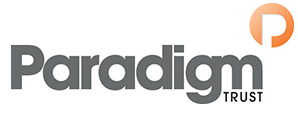Alan Tobias OBE
Director
Alan became a Director of Paradigm in June 2024.
He is a qualified Solicitor with a strong record of senior management in both the public and private sectors.
His primary career was in local government, where he rose to become a London Boroughs Chief Executive the majority of his working life in Tower Hamlets and Waltham Forest. On leaving local government he was appointed Chairman of Essex Probation Service where he served for six years.
He then moved into the Health Service and was appointed Chairman of West Essex Primary Care Trust for 4 years before being appointed Chairman of Southend Hospital Trust in 2011. Uniquely, in 2019 he also was also appointed concurrently to Chair Mid Essex Hospital Trust. When those hospitals merged together with Basildon Hospital to form MSE NHS Trust in 2019 he was appointed Vice Chairman.
Along the way, Alan also sat on the Springboard Housing Trust, served as a Trustee to Leyton Orient Charitable Trust, was a Director of a PLC and an IT Company.
In 2004 he was awarded an OBE for services to the Probation Service and service to community relations.
New Principal appointed at Culloden Primary
Following a rigorous Principal recruitment process, we are pleased to announce the appointment of Tahreena Ward as the new Principal of Culloden Primary Academy.

Tahreena has been working as Interim Principal at Culloden since last December, when previous Principal, Ben Carter, took up the role across our Trust of Director of School Improvement. She is a very experienced leader, having also worked across the Trust’s other London schools, and we are confident she’ll continue the good work at Culloden and take the school to many further successes.
